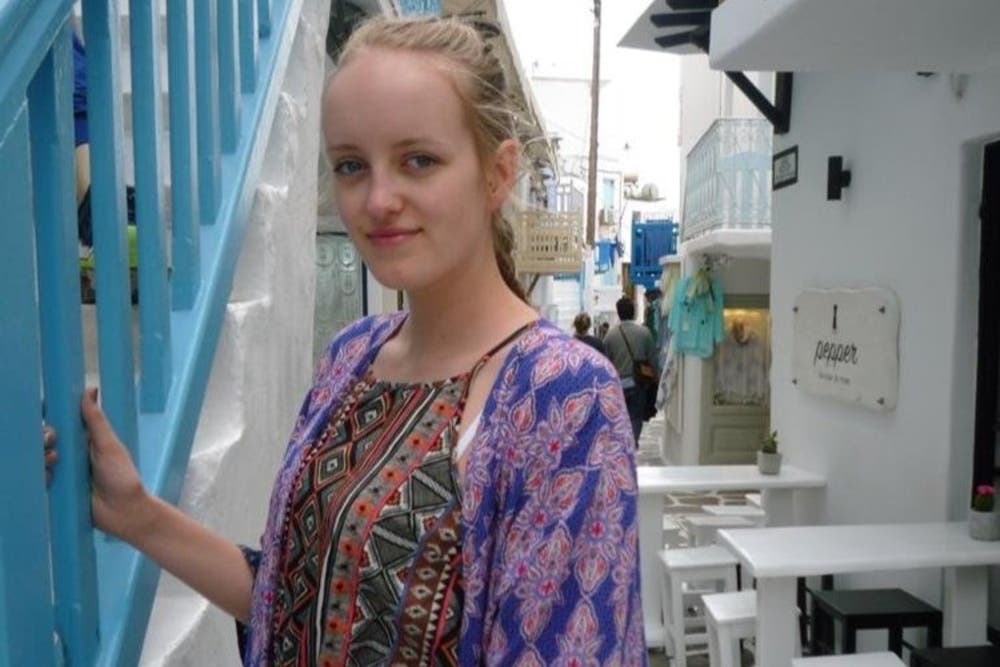Gracie Spinks inquest coroner tells jury to return unlawful killing conclusion
The jury was told it was not to decide whether multiple failings admitted by the police contributed to Ms Spinks’ death.

The coroner in the inquest into the death of Gracie Spinks has told a jury that it should only return a conclusion that she was unlawfully killed.
Assistant coroner for Derby and Derbyshire, Matthew Kewley, told the 10 jurors at Chesterfield Coroner’s Court that he “was in effect telling” them to conclude that Ms Spinks, 23, died as a result of being fatally stabbed by 35-year-old Michael Sellers.
The jury – members of which were wearing pink and purple wristbands in Gracie’s memory – is due to retire on Wednesday to consider where, when, how and in what circumstances Ms Spinks died after hearing evidence since October 30.
But Mr Kewley said the jury should only return the conclusion of unlawful killing due to the nature of the evidence.
The evidence overwhelmingly suggests that Gracie was killed by Michael Sellers
He said: “While yes, it is a matter for you, in effect, I am telling you the conclusion you should reach.
“It is a conclusion that is used when you are satisfied on the balance of probabilities that in this case Gracie died as a result of the criminal offence of murder.
“The evidence overwhelmingly suggests that Gracie was killed by Michael Sellers.
“There can be no real argument about that in my view.
You can take it from me that there is no suggestion that Michael Sellers was acting in any sort of self-defence. He was the aggressor and that is why I say to you that Gracie was unlawfully killed.
“You can take it from me that there is no suggestion that Michael Sellers was acting in any sort of self-defence.
“He was the aggressor and that is why I say to you that Gracie was unlawfully killed.”
The inquest has heard that Ms Spinks was killed as she tended to her horse at Blue Lodge Farm in Duckmanton, Derbyshire, on June 18 2021, with Sellers’ body found a short distance away later that day with self-inflicted injuries.
Several months earlier, Ms Spinks had reported “creepy” Sellers to their employer and the police over stalking concerns after she had declined to pursue a romantic relationship.
This followed Sellers repeatedly contacting her without permission and “effectively hounding” colleagues for information about her, Mr Kewley said, and watching her on CCTV at their workplace.
But he was graded only as low risk by Derbyshire Police and given words of advice, despite Sellers telling them he believed he was in a relationship with Ms Spinks.
In May 2021 a bag of weapons – which also included Viagra tablets and a note saying “don’t lie” – was found on a bridle path near where Ms Spinks’ horse was stabled, but this was dismissed by police, with one officer believing they were theatre props.
Several officers have given evidence in the inquest, with one saying the weapons should have been a “concern” and another telling Ms Spinks’ family that he was “truly sorry” and said the force “should have done better”.
However, Mr Kewley told the jury that they were not to decide whether multiple failings admitted by the police contributed to Ms Spinks’ death.
But he told jurors to reference them in their conclusion, so “there is a clear record of the fact that there were serious failings by the police”.
He said: “It would not be safe for you to consider whether, if any of these failings had not happened, the outcome might have been different.
“It is not possible to say whether the outcome would have been different.
“It is accepted by Derbyshire Police that those failings happened.”
The inquest continues.
Bookmark popover
Removed from bookmarks